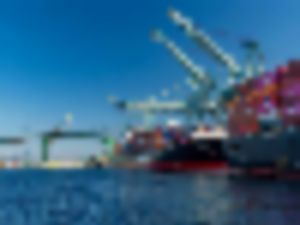AI summit in NYC unlocks potential for logistics
The scenes could have well been from a sci-fi movie, with ant-like robots crawling around or humanoid figures greeting visitors, but these were played out at the AI Summit in New York
E-commerce is air cargo golden egg but there’s a downside
Cross-border e-commerce has indisputably become air cargo’s golden egg in recent years to a point where it is no exaggeration to suggest that it is fast-becoming the sector’s leading commodity surpassing general cargo.
Take-off of French cargo airship startup Flying Whales neither smooth nor simple but investors keep faith
The take-off of French cargo airship startup Flying Whales is proving neither smooth nor simple despite being vaunted as a prime example of the low-carbon transport of the future.
Exclusive interview with AWO’s Jennifer Carpenter
In her December 20th interview with AJOT, Carpenter addressed numerous concerns with the industry including the Jones Act and the decline in maritime employment interest.
U.S. ports 2024: Behind the volume surge
U.S. port operations have seen record-breaking volumes while demonstrating remarkable resilience — despite serious structural challenges that could reshape maritime trade patterns in 2025.
Port of LA’s Seroka: “on pace to exceed 10 million” TEUs In 2024
The Port of Los Angeles processed 884,315 TEUs in November, a 16% increase over the previous year and so far in 2024 has moved 9,375,735 TEUs, 19% ahead of its 2023 pace:
Port of Long Beach’s Cordero says port on course for 9.6 million TEUs in 2024
Port of Long Beach the port surpasses the previous record set in November 2020.
Port of Oakland’s Wan says infrastructure building blocks will speed growth
Wan thanked Port of Oakland maritime stakeholders, including truckers, shippers, terminal operators, and longshore workers represented by the International Longshore and Warehouse Union (ILWU): “We have a partnership with you, and we are making great strides …
Peterson Institute’s Lovely warns new tariffs equal: “Uncertainty…Disruption and Higher Prices”
Mary E. Lovely, Senior Fellow at the Peterson Institute of International Economics, based in Washington D.C., warned of “uncertainty” and “disruption” on U.S. trade and for U.S. shippers as a result higher tariffs expected to be implemented by President-elect Donald Trump.
AAPA hails $2.9 billion for ‘Clean U.S. Ports Grants’
On October 29th, American Association of Port Authorities (AAPA) President & CEO Cary Davis said the AAPA continued its strong advocacy for U.S. ports and emphasized the importance of new federal renewable energy grants, totaling $2.9 billion, supporting new economic development.
© Copyright 1999–2025 American Journal of Transportation. All Rights Reserved











